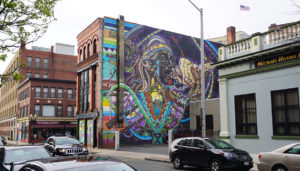
Art As A Prescription For Culture
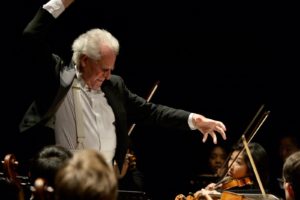
The Art Of Possibility
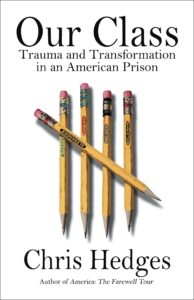
What I Learned In Prison
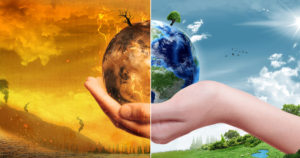
Eco-Anxiety

The Day The World Stops Shopping
THE TRUTH AT THE HEART OF THE LIE: How the Catholic Church lost its soul
JESUS AND JOHN WAYNE: How white evangelicals corrupted a faith and fractured a nation
HOW GOD WORKS: THE SCIENCE BEHIND THE BENEFITS OF RELIGION
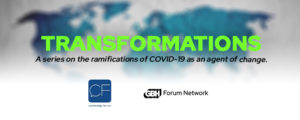
What have we learned from the first covid wave?

Has The Pandemic Made The World Better?
CAMBRIDGE FORUM 2020-21
Jan 6 HOW TO THINK LONG-TERM IN A SHORT-TERM WORLD
Roman Krznaric, philosopher and author of “The Good Ancestor”
tells us it’s time to trade in our shortsightedness for long-term thinking both for our own good, and for the wellbeing of the planet. Krznaric specializes in writing about the power of ideas to change society.
Jan 19 MARKERS AND REMINDERS: MLK TO BLM
Cambridge Forum partners with HSBA to examine Dr. Martin Luther King Jr.’s legacy and Black Lives Matter’s impact on the history of Cambridge, Boston and beyond. Denise Jillson, Executive Director of HSBA and Denise Simmons, Cambridge City Councillor talk with Imari Paris Jeffries, Executive Director of King Boston about the significance of markers in our communities and the planned three-story “Embrace” memorial to honor Dr. Martin Luther King Jr.
Feb 3 WOMEN AND LEADERSHIP
Julie Gillard, former Prime Minister of Australia (2010 – 2013) sends a powerful call to action for achieving equality in leadership in her new book on the topic. Using current research as a starting point, Julia Gillard and Ngozi Okonjo-Iweala analyzed their experiences and interviewed women leaders around the world to investigate the question of why are there so few women at the top?
Feb 24 THE POWER OF ETHICS: HOW TO MAKE GOOD CHOICES IN A COMPLICATED WORLD
Susan Liautaud teaches Ethics at Stanford and in her new book she shows how ethics can be used to create a sea change of positive decisions that can ripple outward to our families, communities, workplaces, and the wider world—offering unprecedented opportunity for good.
TRANSFORMATIONS: a new six-part series examining the various ways that COVID has acted as an agent of change in our lives.
March 3 GREEN GROWTH: A GUIDE TO POST-PANDEMIC ECONOMIC SUSTAINABILITY
Can we achieve healthy growth, the kind that is more regenerative than wasteful, more equitable than unjust?
PER ESPEN STOKNES and L. HUNTER LOVINS believe they have the answers. Both are experts in the field, having written books that offer blueprints for an inspiring regenerative economy that avoids collapse and works for people and the planet.
April 13 COMING TO OUR SENSES: POST-PANDEMIC EMPATHY
The pandemic and ensuing lockdown created a slew of emotional challenges for everyone, from toddlers to seniors. MIT Professor, Sherry Turkle, psychologist and author of “The Empathy Diaries” helps us understand the emotional impact of the pandemic: what did lockdown and isolation demand of us? And now that social skills have atrophied, how will we retrain ourselves to interact with each other again? Turkle helps us understand how we might rejuvenate our senses and flex our empathy muscles once more.
April 27 SEVERE INFORMATION DISORDER: CAN WE RESTORE A HEALTHIER INFORMATION ECONOMY?
Many of today’s problems – the pandemic, the economic crisis and political violence are the result of our severe information disorder. How do we create a universe of truthful and verifiable information, available to everyone? Peter Kaufman, MIT Open Learning instructor, has written a new book which suggests it might be time to think anew about our rights to knowledge, our concept of information and the public good. Joined by Casey Davis-Kaufman, Associate Director of GBH Archives and Project Manager for the American Archive of Public Broadcasting.
May 18 THE END OF THE OFFICE: How the pandemic has affected work/life Some people can’t wait to get back to the office but 80% don’t want to or would prefer a hybrid schedule, according to a recent Harvard survey. Many more have no such attractive options. But all of us must consider the future of our workplaces going forward. Are these new work/life changes here to stay? Nick Bloom, professor of economics at Stanford University specializing in management practices and uncertainty, will discuss his research into the balance between work, life and home. Dr. Brad Harrington, Executive Director of the Boston College Center for Work & Family (BCCWF) is a research professor in the Carroll School of Management
June 8 RELATIONSHIP ROLLERCOASTER
The pandemic was a lethal litmus test for relationships of all kinds. An assortment of people found themselves locked down together. Some saw the deaths of family or friends. Others were deprived of seeing neighbors, co-workers, schoolfriends or lost the support of community groups like choirs. As we emerge from the Covid cocoon, a significant number of relationships have cemented or ended, but several million Americans have also acquired pets.
Rich Slatcher is Professor of Psychology at the University of Georgia. His research focusses on understanding the effects of people’s close relationships on their health and well-being. He currently oversees the Love in the Time of COVID project to examine the global effects of the pandemic on people’s relationships.
Andrés Holder is Executive Director of the Boston Children’s Chorus.
Mark Cushing, author of Pet Nation, takes an inside look at how pets have become treasured members of the American family. Has this love affair with pets resulted in a national cultural transformation?
June 29 HAS THE PANDEMIC MADE THE WORLD BETTER?
Despite the damage and carnage, the pandemic accelerated our ingenuity and innovation, and forced us to modify our behaviors.
Good things happened; multi-disciplinary collaborations took place across continents, long-distance Zoomed partnerships were sealed privately and professionally. Vaccine production took off at record speed, Peloton sales exploded, there was mammoth growth in gaming and home office design, gyms sprung up in garages, people gardened and baked bread. How much of this was a passing fad and how many takeaways from 2020 are here to stay? Best and worst.
